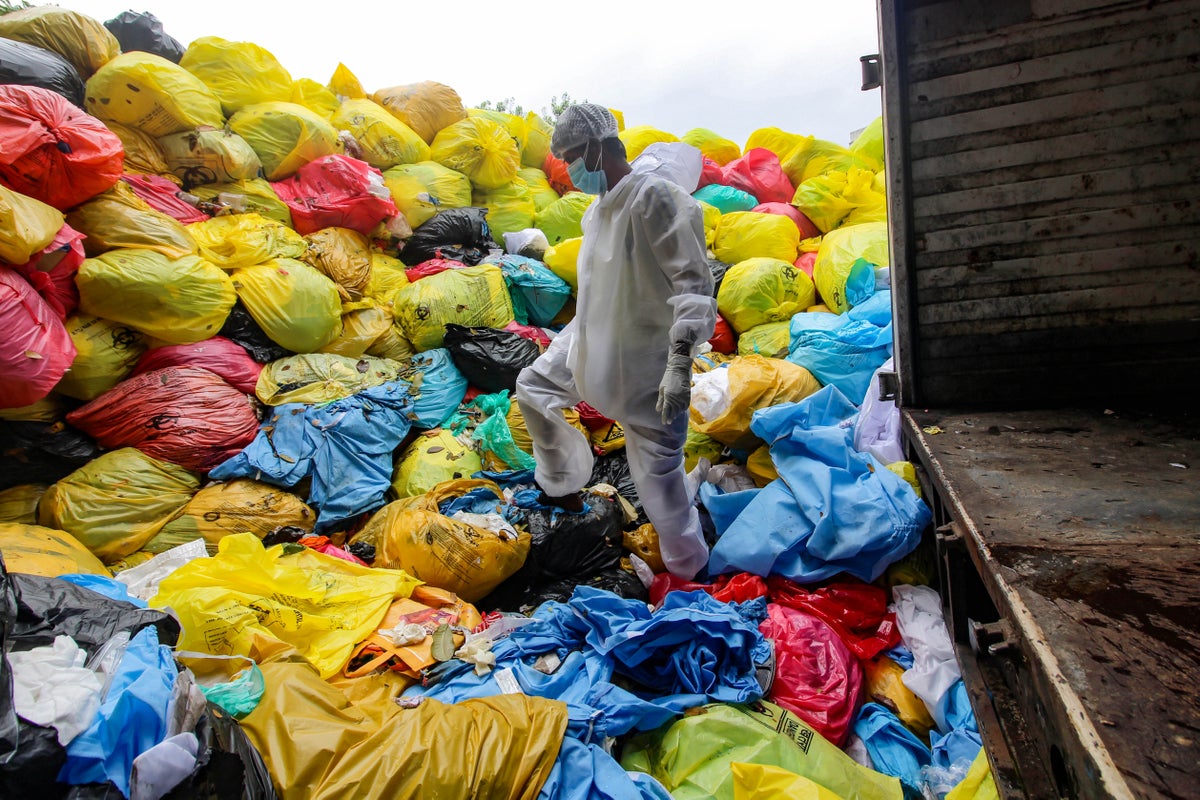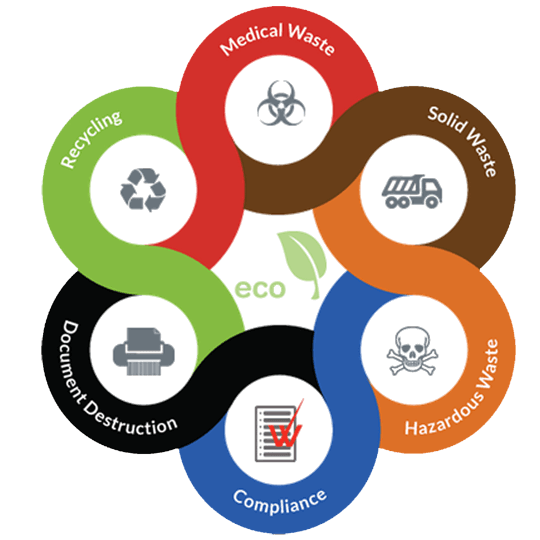Making Sure Safe Handling and Disposal of Medical Waste
Making sure risk-free handling and disposal of medical waste is of paramount relevance in medical care setups. Incorrect administration of clinical waste can position significant risks to the setting, public wellness, and health care workers. In this intro, we will explore the significance of proper clinical waste administration, the risks linked with incorrect handling and disposal, as well as the guidelines and approaches that can be carried out to ensure its secure disposal.
Value of Proper Clinical Waste Management
Correct medical waste monitoring is of utmost value in guaranteeing the safety and security and wellness of healthcare experts, patients, and the public. Medical waste describes any waste created by health care centers during the diagnosis, treatment, or immunization of people or animals. This waste can present major wellness risks otherwise managed and dealt with properly.
Among the primary reasons correct medical waste administration is essential is to stop the spread of contagious conditions. Medical waste, such as utilized needles, contaminated dressings, and biological materials, can bring harmful microorganisms. Otherwise taken care of and gotten rid of appropriately, these pathogens can be transmitted to health care workers, people, waste trainers, and also the basic public, bring about the potential break out of illness.
Furthermore, correct clinical waste monitoring helps safeguard the atmosphere - medical waste disposal. Clinical waste consists of unsafe products, consisting of chemicals, drugs, and contaminated materials. When not taken care of suitably, these substances can infect dirt, water bodies, and the air, posing a considerable risk to environments and public health and wellness
In addition, reliable clinical waste administration makes sure conformity with global requirements and neighborhood laws. Federal governments and regulative bodies have established guidelines and methods to guarantee the safe handling, storage, transport, and disposal of medical waste. Abiding by these regulations is essential to avoid lawful repercussions and preserve the reputation and trustworthiness of healthcare centers.
Dangers of Improper Handling and Disposal

Individuals can additionally be exposed to these infectious illness if medical waste is not properly thrown away. For instance, if contaminated needles or other sharps are not dealt with in assigned puncture-proof containers, they might accidentally puncture people, leading to potential infections. Additionally, if medical waste is not segregated properly, there is a threat of cross-contamination in between various sorts of waste, further increasing the chances of condition transmission.
Improper disposal of clinical waste can likewise have harmful effects on the setting and the public. If medical waste is not dealt with and taken care of appropriately, it can pollute water sources, dirt, and air, causing the spread of toxins and illness. This can have long-term repercussions on environments and public health.
Standards for Safe Handling of Medical Waste
Executing reliable procedures for the safe handling of clinical waste is important in making certain the security of medical care professionals, people, and the general public. These standards are important in minimizing the dangers associated with the handling and disposal of medical waste, such as infections, injuries, and ecological contamination.
First and leading, health care centers should develop a comprehensive waste administration strategy that follows regional, nationwide, and worldwide laws. This plan needs to include clear directions on waste partition, product packaging, labeling, storage, and transport. It is important to divide various sorts of waste, such as sharps, contagious products, drugs, and non-hazardous waste, to stop cross-contamination and advertise secure disposal.
Additionally, health care employees must get comprehensive training on appropriate waste handling strategies. They should be enlightened on the potential dangers of clinical waste, the ideal use personal protective devices (PPE), and the right treatments for taking care of, transporting, and dealing with different kinds of waste.
Additionally, health care facilities ought to on a regular basis check and examine their waste monitoring techniques to make certain conformity with standards. This includes carrying out regular evaluations, evaluating waste handling procedures, and providing feedback and training to team member.
Reliable Approaches for Garbage Disposal
To guarantee the safe handling and disposal of medical waste, it is important to use reliable methods for waste disposal. Medical waste can posture substantial threats to public health and wellness and the setting if not dealt with and gotten rid of properly. For that reason, healthcare centers and waste monitoring organizations should execute appropriate strategies to mitigate these risks.
One reliable method for waste disposal is partition. It involves separating various sorts of clinical waste based on their features. Segregation enables the appropriate treatment and disposal of each waste group, minimizing the potential for contamination or injury. Health care facilities must give clear standards and training to employee on just how to set apart waste appropriately.

Moreover, medical care facilities ought to work together with licensed waste administration business to make certain correct disposal of medical waste. These business have the knowledge and devices required to safely dispose and manage of medical waste in conformity with guidelines and finest techniques.
Training and Education And Learning for Medical Care Professionals
Medical care professionals play an essential duty in guaranteeing the risk-free handling and disposal of medical waste with extensive training and education. It is vital for health care carriers to have a deep understanding of the possible threats related to clinical waste and the correct procedures for its administration. By receiving proper training, healthcare specialists can reduce the possible transmission of contagious diseases, avoid environmental contamination, and protect both themselves and the general public.

In addition, training programs ought to stress using personal safety equipment (PPE) and appropriate hand hygiene practices when managing medical waste. medical waste disposal. Medical care professionals must recognize just how to correctly utilize and get rid of of PPE to safeguard themselves from possible direct exposure to harmful products. They should also be informed on the value of normal handwashing and the correct use hand sanitizers to reduce the spread of contagious illness
Continuing education and normal updates on clinical waste management methods are critical for healthcare experts. As laws and standards advance, it is vital to maintain medical care companies notified concerning any kind of changes in protocols and best techniques. This will certainly make certain that they stay updated and preserve a high criterion of safety and security in disposing and dealing with of medical waste.
Conclusion
In final thought, appropriate handling and disposal of medical waste is vital to make certain the safety and security of medical care specialists, people, and the setting. Ignoring to comply with standards and guidelines can lead to various risks and hazards. Implementing effective approaches for garbage disposal and giving ideal training and education and learning for medical care specialists are crucial in keeping a secure health care environment. By adhering to these techniques, we can minimize the possible risks related to medical waste.
Medical waste refers to any kind of waste produced by healthcare centers during the diagnosis, therapy, or immunization of animals or human beings. If medical waste is not set apart correctly, there is a risk of cross-contamination in between different kinds of waste, further raising the possibilities of condition transmission.
It is crucial to separate various types of waste, such as sharps, transmittable materials, drugs, and non-hazardous waste, to prevent cross-contamination and advertise safe disposal. WasteX Medical Waste Disposal.
To guarantee the secure handling and disposal of medical waste, it is necessary to employ efficient approaches for waste disposal. Furthermore, health care facilities must develop a routine waste collection and transport schedule to avoid waste accumulation and decrease the risk of mishaps or contamination.